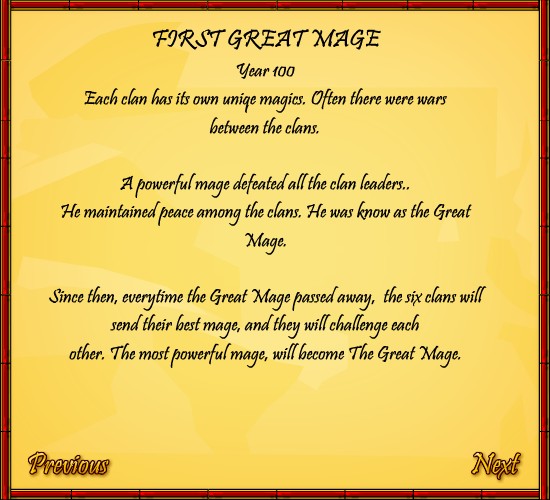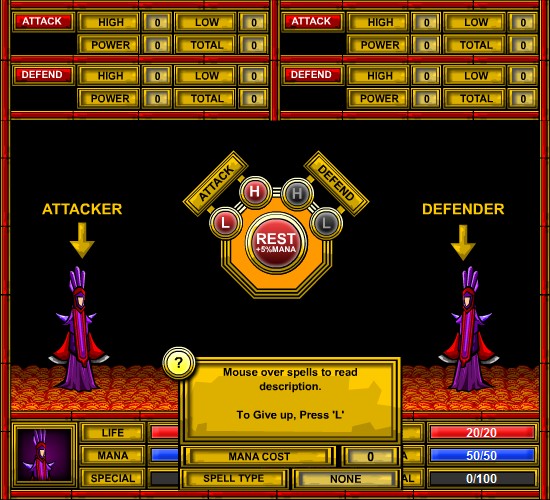
Book Of Mages The Dark Times Hacked
Guide your mage to the top ranking in Book of Mages! RPG with great story&multiple-endingsBook of Mages is a deep RPG game with great story, multiple-endings and a complex turn-based combat system. Choose who you want to be in the world of mages. Will you join the evil Black Robes, or the righteous White Robes? Will you become a traitor, a hermit, or even the Great Mage?This is a game that will keep you entertained for ages. It has a great sense of adventure and huge amount of detail.
Book of Mages Chrome and Flash: Click the plugin icon in the right side of the address bar, click 'Manage' button, click on 'Block sites from running Flash' to change to 'Ask first' -OR- click top-right menu (⋮), Settings, search for 'flash' in blue bar, Site Settings, Flash, click on 'Block sites from running Flash' to change to 'Ask first.
It has multiple endings and 6 clans to choose from. Will you join the evil Black Robes, or the righteous White Robes? It's all you could ask for in an RPG. Put on your best robes and have it!The learning curve might be steep, but it is worth it as you can replay the game many times with different outcomes! Step one: Play Chaos DesertStep two: Amas enough training points to get max high and low boltsStep three: Go to the magic master to get extra high and low bolts, and rank them up to max as wellStep four: Obtain enough mana so that you don't run out halfway through a fightStep five: Obtain the extra attacking bolts special attack from the magic master, and rank them up to maxStep six: Collect the Burning special from the magic master.Step seven: Learn the Drain Special skill.At this point, you should have won the Young Mage Contest.Step eight: Go the the Wilderness in Chaos Desert.
You will find a graverobber there. Accept his bribe. This will come into play later.Sidenote: Always fight in the arena if you can avoid the mana cave.
You will get one training point if you lose, and win two if you win. This makes it the faster option.Step nine: Continue ranking up your abilities and such. I don't quite remember when, but eventually, the town crier will say something and some more options will open up when it comes to exploring. Go to Darkwood, and go to the wilderness to find the graverobber. Take his bribe again, for it is the single most overpowered item in the game.Step eleven: At this point, you will be shooting eleven bolts instead of ten, which means that you can get a decrease special bolt in, leaving them wide open to use burning+extra bolts. This means you are basically invincible (as long as you have enough mana and health)Step twelve: (optional) once you hit rank one, badger the mysterious hermit until he fights you. Defeat him, and take your rightfully owned 'Invincible' title.Oh yeah, the game is great too.
Well, how should it feel being a mage?The D&D games made magic very precious, something to be hoarded because you only got a little each day, and had to spend lots of time getting it back. And when you weren't using it, you were a frail little weakling.(The Sorcerer class that came later made that a lot easier - no prep time required, just the sleep - and they get more spell castings without having to choose the spells beforehand. But on the other hand, they generally knew fewer spells.)Magic in the Tolkien world took that even further. Gandalf almost never used magic except in the most dire situations. (Really, he was so reluctant to use magic it seemed more like he was just a really smart guy but with a few tricks - kind of like Dr Who.)But other games turned magic into a gun, usable almost non stop, often completely non-stop if you spent skill points in mana regeneration or bought lots of mana potions.
Most of the games where you could be a straight magic user without a party fit into this category.And of course in the real world, a magician is a trickster, not doing real magic at all but instead sleight of hand tricks - more like the RPG thief than the RPG mage. (Though the movie 'Oz The Great and Powerful' took that trope and made it something special.)And then some science fiction games don't have magic exactly, but have powers and skills that work just like magic - I'm thinking the Jedi in Star Wars, or the Engineers or Biotics in Mass Effect.As for which made it more fun, that depends on what you're after. Gandalf's use of magic was very subtle, you'll miss it if you're not keeping a keen eye out for it.Most notably, after the fellowship battled the troll in the Mines of Moria, more orcs were still on their way doom doom.
The sound of their drums were getting louder and louder, and Gandalf directed the company, now spent, through some doors and down a narrow stairwell. He remained at the top, just behind the doors doom doom doom.According to Frodo, he heard what sounded like Gandalf muttering for a while, followed by a brilliant flash of while light.
The drums, now at their closest, got louder still, then stopped. When they continued again, they were more distant, and growing more distant still.Gandalf flew down the stairs, falling in the middle of the company. He looked up saying, 'Well now, I've done all that I could.' Tolkien made magic a very difficult, powerful thing.
I like this interpretation, subverting the natural laws of the world should not be taken lightly. It also made the ring that much more important and powerful.We never fully understand what the ring would do, mechanically, for a powerful being. We are described its effects, yes, the outcome of using the ring, but it is never revealed just how the ring manifests these things. My own interpretation is this is closely related the nature of magic in Middle Earth being difficult and rare.Sauron poured his soul, his magic into this ring, possibly for years or even decades. The power of his magic therefore laid latent in the ring itself, able to be used at a moments notice. The ring, being a conduit of the magic it contains, allows the bearer to cast spells and use its power, rather than the bearers own.
But make no mistake – this is no fight for victory, but a desperate grasp for survival.Bad North is a charming but brutal real-time tactics roguelite. Hope is a distant glimmer in the fog, fading fast with every passing moment. Defend your idyllic island kingdom against a horde of Viking invaders, as you lead the desperate exodus of your people. The king is dead at the hands of Viking invaders. As you rise to take your father’s place as ruler, it will fall to you to stage your defenses. Bad north enemies.
Magic can be therefore cast continually and without taxing the bearer. It became, in effect, a battery of magical power, terrible and compelling.In a world where casting an illusion spell to change doors to look like a wall (or perhaps even physically change a door into a wall) uses most of a Maiars power, imagine the threat you would pose being able to cast any spell at a moments notice. Tolkien made magic a very difficult, powerful thing.I like how you put that.And on the total other end of the spectrum, many games turn magic into a gun to be fired at will, with a few seconds taken to reload if you've been firing too quickly or perhaps quaff a potion of mana.I guess the difference is the media - Gandalf's magic works good for a story, where magic is a mystery and special, and Gandalf's power isn't so much in his magic but his wisdom.
But that wouldn't work well for an action game at all.Both have their place. I guess the difference is the media - Gandalf's magic works good for a story, where magic is a mystery and special, and Gandalf's power isn't so much in his magic but his wisdom. But that wouldn't work well for an action game at all.I'm not entirely sure about that.On one side of the spectrum, you have literature, like the Wheel of Time, that features fantastically robust magic systems. The difference is in the mythos of such a world, where the use of magic isn't a 'subversion of the natural laws of the world', as put it, but rather a key piece of the natural law of that fantasy universe.On the other side of the spectrum, you have games that feature plenty of action in the form of traditional physical combat, while still incorporating the same sort of subtle, special, occasional magical undertones LotR employs. That is, you can have both action and magic in a game without magic being at the center of the action. I don't know, any question about 'capturing the feeling' of something seems to me a question primarily concerned with immersion. While Magicka has an incredibly fun (especially in co-op) free system of magic, I never quite felt like I was a wizard while playing the game.
Quite the opposite really, I felt like a person behind a computer playing a video game. I've almost never been more outside of a game, concerned primarily with paying attention to my button presses, than when playing Magicka.
That is, it was entirely unimmersive to me. What you're saying makes sense; if youre focusing only on pressing buttons rather than on the game it's not going to feel immersive. I initially thought that too, until I realised that the constant pattern memorization and exploration of elemental combos is what makes it immersive. Imagine being a wizard. You have to learn and practice spells every day, your arsenal is your spellbook, and be able to execute them perfectly even in a stressed situation requires not only a great memory but also steady nerves.

There are also going to be spells that are both powerful and useless in their own situations that nobody will understand unless you are put into that situation to test it. Memorizing these buttons is no different to memorizing these spells while under stress and experimenting with different spells in different situations is what makes a wizard.
Why do you think it takes a high intelligence to be able to cast spells? A wizard without his mind is not a wizard at all.